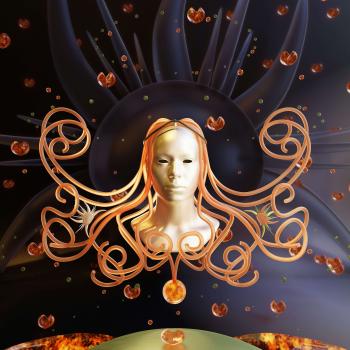Are you happy? Chances are, if I caught you on a good day, you’d probably say yes. But on other days, you might feel as if something was missing, as if there was a small void in your life that you couldn’t quite put your finger on. A magical missing ingredient.
This sense of subdued discontentment is one of the many areas author Benjamin Riggs explores in his new book Finding God in the Body. Its subject matter extends well beyond its title and invites us to take a close look at who we are, what makes us tick and how we can come closer to happiness and contentment by finding God (and ultimately, ourselves) within.
If you read my last story, you’ll know this is a continuation of a theme. I wrote about how medical professional David Mercier has attributed many of our ailments and symptoms, from our aches and pains to fatigue and the blues, to the stress and worries of our modern daily lives.
Riggs continues this argument. He writes of the “busyness” that controls our lives as we continually move from task to task in both our work and personal lives. The author points out how, for many of us, life feels like “a never-ending project. We are forever trying to improve our self, our job, our relationships, and no matter how much we try, happiness escapes us.”
So why do we stay so busy? It seems we consistently put ourselves in situations that are stressful and take us further away from the happiness we desire. Riggs blames our actions on the “false self” or ego, the exterior part of ourselves that we present to the world. (As opposed to our true self which resides within.) He writes that we need to “be on guard against the false self’s agenda”, because:
Our true life cares nothing about projects, plans, fears or ambitions of the false self. It is our job to cut through the stress, anxiety, aggression and depression and come back to our Self over and over again.
The good news is there’s a simple cure for our stress and anxiety. We need to focus our search for happiness away from the outside world and place it on our self.
To do this, Riggs has a few ideas, starting with a return to “wakefulness”. (And given that this column is titled Wake Up Call, it’s an idea I can more than relate to.) It involves preparing our ourselves for what life throws at us with “a daily practice of self-analysis, prayer and meditation.” This includes checking in with ourselves regularly to be sure we are calm, centered and actively awake to the people and world around us. The author advises us to:
Sit with the simplicity of your breath for a few minutes. Throughout the day, return to the immediacy of the present moment by reconnecting with the breath. We must do this in the face of busyness.
If we feel like there’s a missing ingredient in our lives, we need to discover it for ourselves—through introspection. We need to look within ourselves, past the false self which is the ego, to the center of our beings. It is where the real you lives and, not coincidentally, it is where you may sense the presence of the Divine. It is the only place we can find the thing that stands between us and a happier, more contented life.
Riggs reinforces this point, saying, “Happiness evades us because it is found in the one place we have been unwilling to look. We have looked everywhere, except for within ourselves.” And until we figure out how to really look within, we will also have trouble spreading love and goodness to those around us. Again, from Finding God in the Body:
Spirituality does not begin with love and compassion for our fellow man. We can’t give away what we do not have. Before we can love those around us, we have to cultivate a loving kindness toward our Self.
It is up to us to set our own path. In Riggs words, “Others can walk beside us, hold our hand, and be there. What they cannot do is live our lives.” It is up to us to take action, to take charge of our own lives. I am reminded of a bold, all-capped line in a recent post by the music and life critic Bob Lefsetz:
YOU’VE GOT TO RESCUE YOURSELF!
There simply is no other way.


















